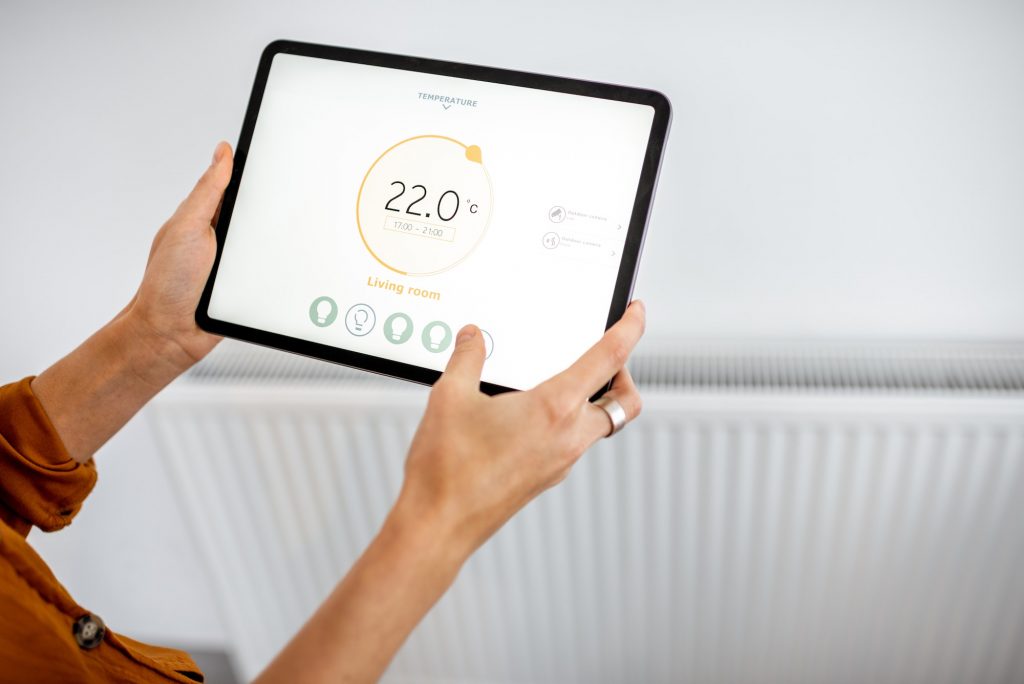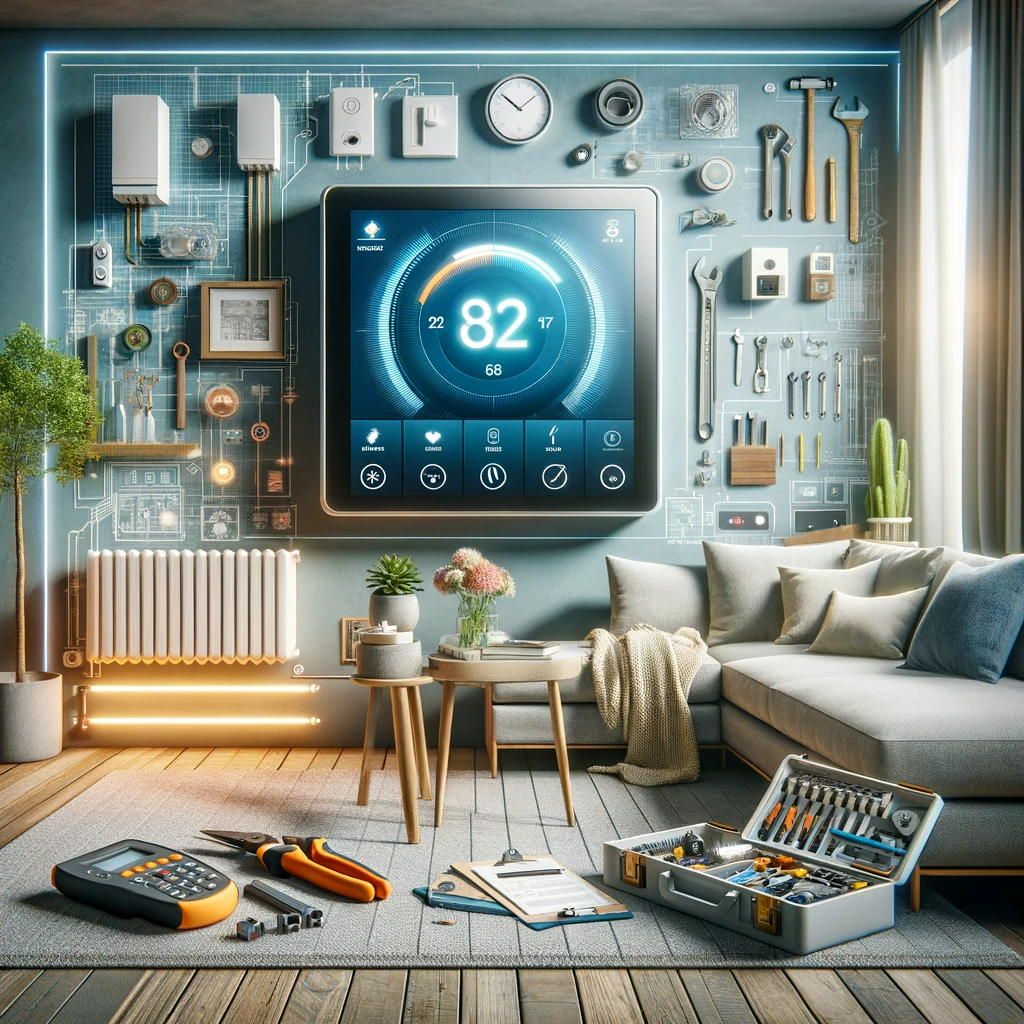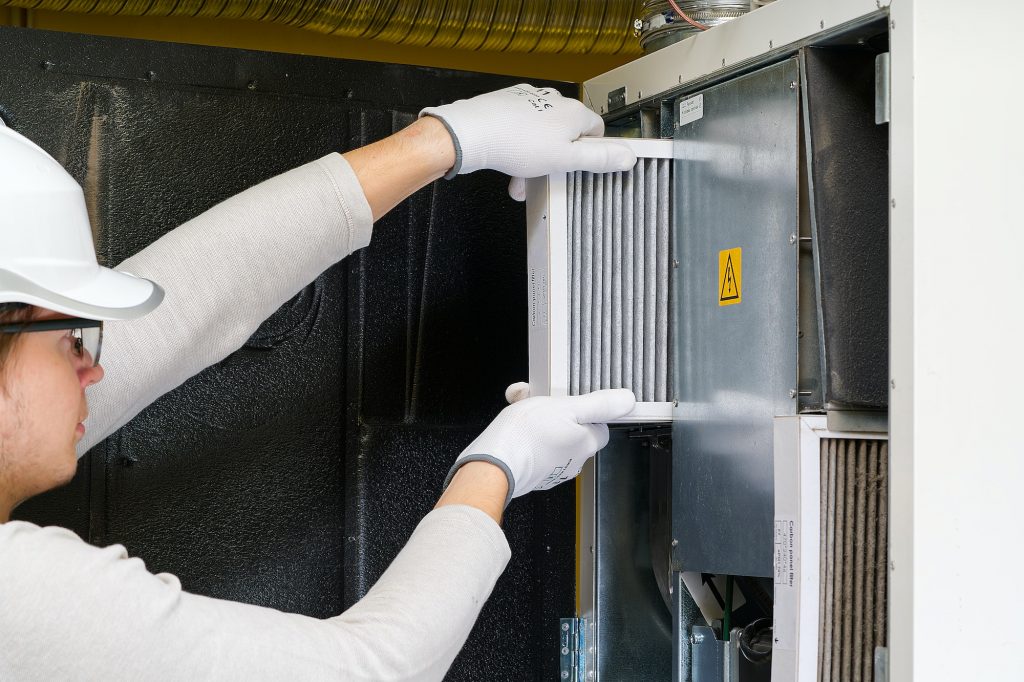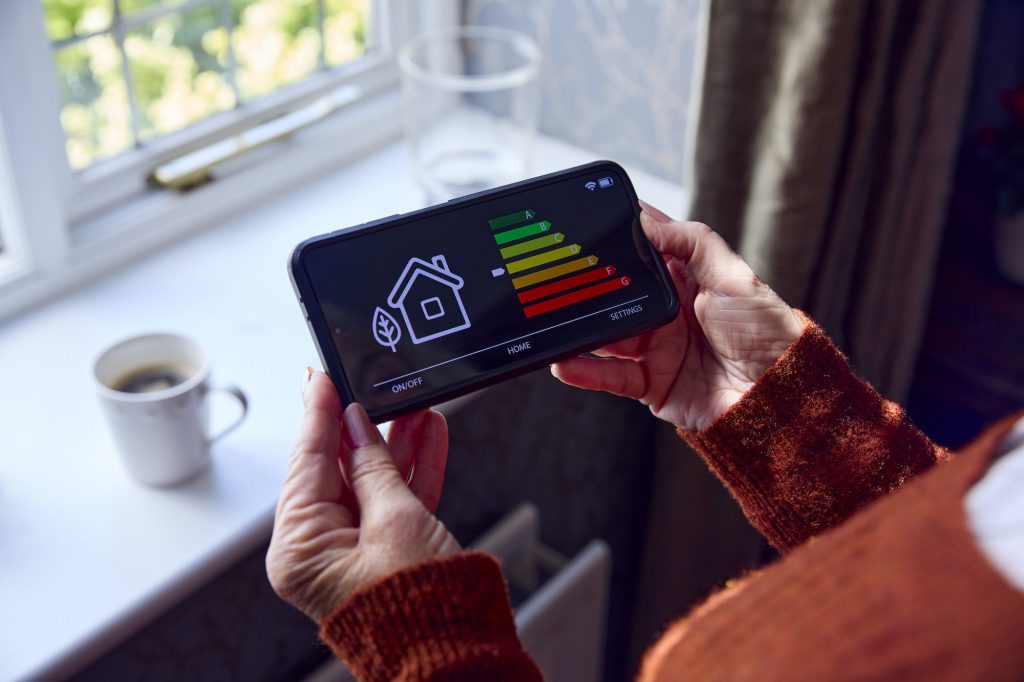Smart Radiators, also known as smart heating systems, are revolutionizing how we control the temperature in our homes. With the ability to connect to your home’s Wi-Fi network, these radiators allow you to control the temperature in each room of your home from your smartphone or tablet.
This article aims to provide a comprehensive overview of Smart Radiators, including their characteristics, benefits, and how they work. We’ll also compare them to traditional heating systems and cover some of the top brands in the market.

What are Smart Radiators?
A Smart Radiator is a heating device connected to the internet and can be controlled remotely. The radiator is equipped with sensors that can detect the temperature in the room and adjust the heating accordingly.
One of the key characteristics of Smart Radiators is their ability to communicate with each other and other smart home devices. This means you can control the temperature in each room of your home from a single app on your smartphone or tablet.
The components of a Smart Radiator typically include the radiator itself, a thermostatic head, and a hub or bridge that connects the radiator to your home’s Wi-Fi network.
The Advantages of Smart Radiators
Smart Radiators offer several significant advantages over traditional heating systems. These include:
Energy Efficiency
One of the biggest benefits of Smart Radiators is their energy efficiency. With the ability to accurately control the temperature in each room, you can ensure that you only use the energy you need to heat your home. This can result in significant cost savings on your energy bills.
Cost Savings
In addition to energy efficiency, Smart Radiators can also help you save money in other ways. For example, with the ability to control the temperature in each room, you can turn off the heating in rooms that aren’t being used, reducing your overall energy consumption.
Improved Comfort
Smart Radiators also provide improved comfort in your home. You can create a more comfortable living environment with the ability to control the temperature in each room. Additionally, some Smart Radiators have features like geofencing, which can automatically turn off the heating when you leave your home and turn it back on when you return.
Increased Control
Smart Radiators give you increased control over the temperature in your home. With a single app, you can control the temperature in each room of your home, ensuring you always have the right temperature wherever you are.
Remote Monitoring
Finally, Smart Radiators allow you to monitor the temperature in your home from anywhere. With the ability to access your heating system from your smartphone or tablet, you can keep an eye on the temperature in your home even when you’re away.
How Smart Radiators Work
Smart Radiators use sensors to detect the temperature in each room of your home. These sensors communicate with a hub or bridge connected to your home’s Wi-Fi network. The hub or bridge then sends this information to the radiator, which adjusts the heating accordingly.
Additionally, many Smart Radiators can be integrated with other smart home devices, such as smart thermostats and hubs. This allows you to control the temperature in your home from a single app on your smartphone or tablet.
Types of Smart Radiators
There are several different types of Smart Radiators on the market, including:
Electric Smart Radiators
Electric Smart Radiators are powered by electricity and are designed to be used in homes with electric heating systems.
Hydronic Smart Radiators
Hydronic Smart Radiators use hot water to heat your home and are designed to be used with hydronic heating systems.
Battery-Powered Smart Radiators
Battery-Powered Smart Radiators are designed to be used in homes without a power supply. These radiators are powered by batteries and can be controlled using a smartphone app.
Installing Smart Radiators
Installing Smart Radiators is relatively straightforward, but preparing beforehand is important. You’ll need to ensure that you have the right tools and materials and understand the installation process.
If you’re not confident in your ability to install a Smart Radiator, it’s recommended that you hire a professional. A professional installation can ensure that your radiator is installed correctly and is working properly.
Controlling Your Smart Radiator
There are several different ways to control your Smart Radiator, including:
Smartphone App
Most Smart Radiators come with a smartphone app that allows you to control the temperature in each room of your home. The app is typically user-friendly and easy to use, allowing you to control the temperature anywhere.
Voice Control
Some Smart Radiators are compatible with voice control systems, such as Amazon Alexa and Google Assistant. This allows you to control the temperature in your home using just your voice.
Automated Schedules
Smart Radiators also allow you to create automated schedules, so you can set the temperature in your home to change at specific times of the day. For example, you could set the temperature to be lower when you’re at work and higher when you’re at home.
Geofencing
Finally, some Smart Radiators have geofencing capabilities. This means that the radiator can automatically turn off the heating when you leave your home and turn it back on when you return. This helps reduce energy consumption and save you money on your energy bills.
Comparing Smart Radiators to Traditional Heating Systems
When comparing Smart Radiators to traditional heating systems, several key differences exist. These include:
Heating Efficiency
Smart Radiators are generally more efficient at heating your home than traditional heating systems. With the ability to control the temperature in each room, you can ensure that you only use the energy you need to heat your home.
Control and Monitoring
Smart Radiators also provide greater control and monitoring capabilities than traditional heating systems. With the ability to control the temperature in each room from your smartphone or tablet, you have greater control over the temperature in your home. Additionally, with the ability to monitor the temperature from anywhere, you can ensure that your home is always at the right temperature.
Cost
Finally, the cost of Smart Radiators is an important consideration. While they are more expensive than traditional heating systems, the cost savings from increased energy efficiency and reduced energy consumption can offset this initial expense.
Common Issues and Solutions
Despite their many benefits, Smart Radiators are not without their challenges. Some of the most common issues include:
Connection Problems
One of the most common issues with Smart Radiators is connection problems. If your radiator is not properly connected to your home’s Wi-Fi network, you may experience issues with controlling the temperature in your home.
Poor Heating Performance
Another common issue is poor heating performance. If your radiator is not working properly, you may not get the heating performance needed to keep your home warm.
Inaccurate Temperature Reading
Finally, some Smart Radiators may have inaccurate temperature readings. This can result in the radiator not providing the right heat to your home.
The Future of Smart Radiators
The future of Smart Radiators is bright, with many advancements in technology on the horizon. Some of the key trends in the Smart Radiator market include:
Advancements in Technology
We can expect to see even more advanced Smart Radiators as technology evolves. For example, we may see radiators with greater energy efficiency or more advanced control and monitoring capabilities.
Integration with Other Home Systems
We can also expect Smart Radiators to become even more integrated with other home systems, such as smart home hubs and smart thermostats. This will provide even greater control and monitoring capabilities for homeowners.
Expansion into Commercial Buildings
Finally, we can expect Smart Radiators to expand into commercial buildings, such as office buildings and hotels. This will allow businesses to control the temperature in their facilities and reduce energy consumption.
Top Brands in the Smart Radiator Market
There are several top brands in the Smart Radiator market, including:
- Tado
- Netatmo
- Hive
- Honeywell
- NEDIS
Each brand offers a range of Smart Radiators with different features and capabilities. When choosing a Smart Radiator, it’s important to consider your specific needs and choose a brand that meets them.
Cost of Smart Radiators
The cost of Smart Radiators can vary depending on the type of radiator you choose and the features you need. There are two main costs to consider:
One-Time Expense
The one-time expense is the cost of purchasing the radiator itself. This cost can vary depending on the type of radiator you choose and the features you need.
Recurring Costs
There may also be recurring costs associated with owning a Smart Radiator. For example, you may need a monthly subscription to access the radiator’s control and monitoring features.
When comparing the cost of Smart Radiators to traditional heating systems, it’s important to consider the long-term cost savings from increased energy efficiency and reduced energy consumption.
Conclusion
Smart Radiators are the future of home heating control, offering improved energy efficiency, cost savings, and increased control and monitoring capabilities. With technological advancements and integration with other home systems, we can expect to see even more advanced Smart Radiators.
A Smart Radiator may be the perfect solution if you’re considering upgrading your home’s heating system. With the ability to control the temperature in each room of your home from your smartphone or tablet, you can ensure that your home is always at the right temperature.
FAQs
- What is a Smart Radiator? A Smart Radiator is a heating device connected to the internet and can be controlled remotely. With the ability to control the temperature in each room of your home from your smartphone or tablet, you can ensure that your home is always at the right temperature.
- What are the benefits of a Smart Radiator? The benefits of a Smart Radiator include increased energy efficiency, cost savings, improved comfort, increased control, and remote monitoring.
- How does a Smart Radiator work? Smart Radiators use sensors to detect the temperature in each room of your home. These sensors communicate with a hub or bridge connected to your home’s Wi-Fi network. The hub or bridge then sends this information to the radiator, which adjusts the heating accordingly.
- What are the different types of Smart Radiators? The different types of Smart Radiators include electric Smart Radiators, hydronic Smart Radiators, and battery-powered Smart Radiators.
- How do I control my Smart Radiator? You can manage your Smart Radiator using a smartphone app, voice control, automated schedules, or geofencing.
- How much does a Smart Radiator cost? The cost of a Smart Radiator can vary depending on the type of radiator you choose and the features you need. The one-time expense is the cost of purchasing the radiator itself, while there may also be recurring costs associated with owning a Smart Radiator.







